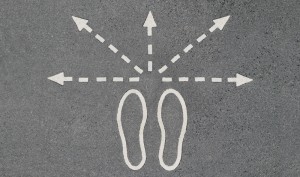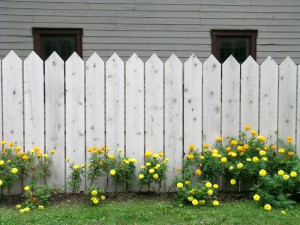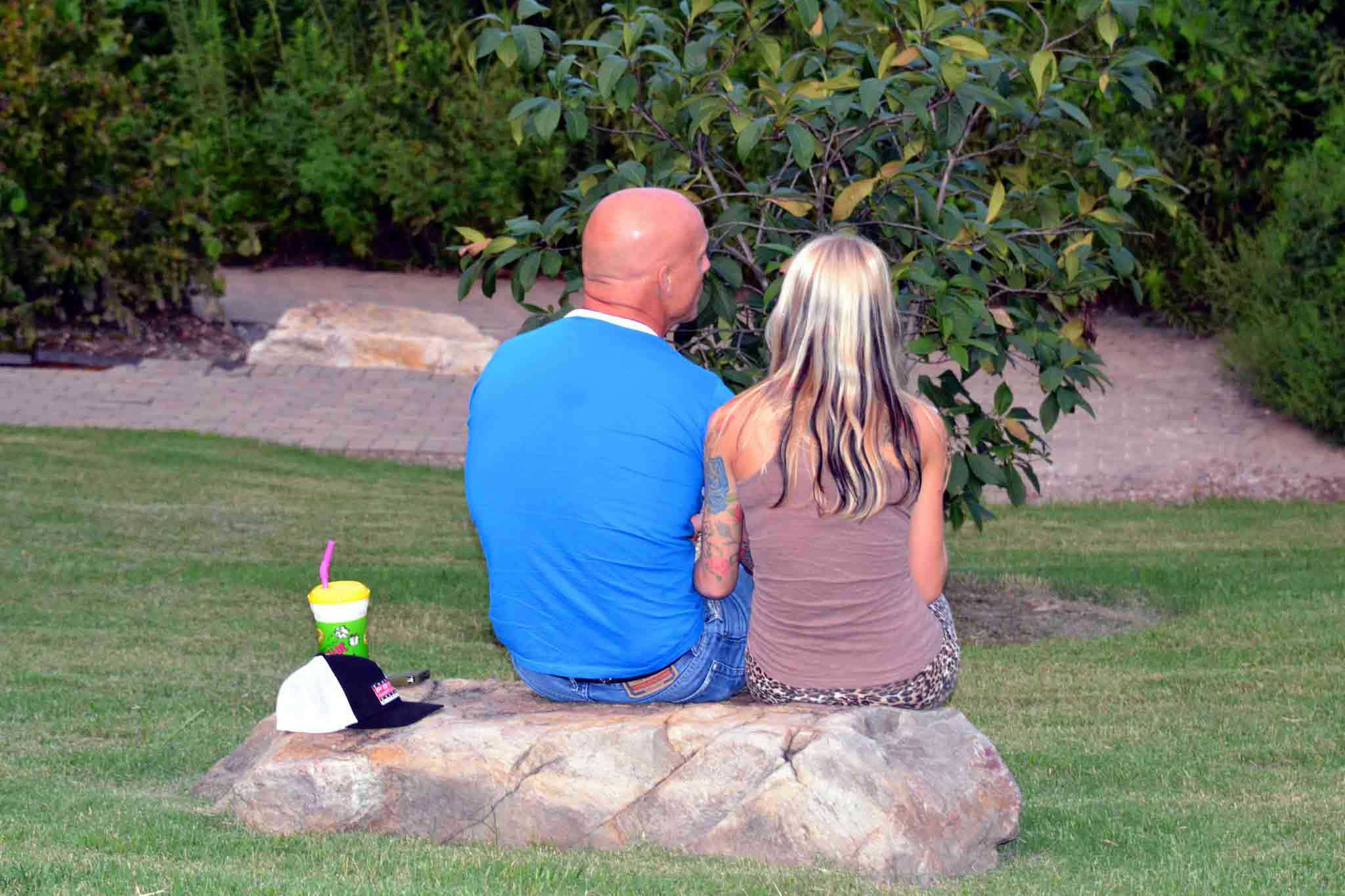 In my work as a Christian counselor, I am often exposed to the challenges that arise in a marriage when a couple is not aware of the importance of boundaries, or have not been taught how to implement them in their relationship. Much of the work that I do with couples includes helping them learn to define and establish healthy boundaries. My own knowledge about boundaries has come through some exceptionally challenging experiences, and from things I have learned from a handful people who are much smarter than I. Those from whom I have learned the most include my wife Heidi, the counselor Patrick Means, author of The Boundaries Book, and Dr. Henry Cloud and Dr. John Townsend in their many books on the topic, especially Boundaries. In this article, I provide an overview of some of the ideas I draw upon most frequently in my role as a counselor. If you are interested in exploring this topic in a deeper way, the two books I referred to in the previous paragraph are a good place to start.
In my work as a Christian counselor, I am often exposed to the challenges that arise in a marriage when a couple is not aware of the importance of boundaries, or have not been taught how to implement them in their relationship. Much of the work that I do with couples includes helping them learn to define and establish healthy boundaries. My own knowledge about boundaries has come through some exceptionally challenging experiences, and from things I have learned from a handful people who are much smarter than I. Those from whom I have learned the most include my wife Heidi, the counselor Patrick Means, author of The Boundaries Book, and Dr. Henry Cloud and Dr. John Townsend in their many books on the topic, especially Boundaries. In this article, I provide an overview of some of the ideas I draw upon most frequently in my role as a counselor. If you are interested in exploring this topic in a deeper way, the two books I referred to in the previous paragraph are a good place to start.
What are Boundaries?
 Consider the fence between your yard and your neighbor’s yard. That fence makes the property line very clear. You know where one yard ends and where the next yard begins. Without that fence, you might have to deal with your trash blowing into your neighbor’s yard – or vice-versa. But the fence keeps the junk in the proper place. It tells you that this pile of rubbish is yours and that pile of debris is his. The fence is not a ten-foot concrete wall that allows no relationship between you and the folks next door. In fact, the fence is permeable and there may even be a gate. You can invite your neighbor to join you in your yard for a BBQ and they can return to their yard when the fellowship is over. Both parties know who they are and where they belong. So it is with relational boundaries. Boundaries show me where I end and where you begin. Every healthy relationship needs healthy boundaries in order to function properly and to grow effectively. Boundaries allow us to engage in relationships from a place of strength and to share our vitality with another person, rather than sucking life out of them. Our boundaries – or our lack of boundaries – are grounded in the families we grew up in, our current belief systems, our personalities, and our attitudes. Without good boundaries there is no clear delineation between the individuals in a relationship. In the absence of boundaries, each person must look to the other to create his happiness, feel his feelings and find fulfillment.
Consider the fence between your yard and your neighbor’s yard. That fence makes the property line very clear. You know where one yard ends and where the next yard begins. Without that fence, you might have to deal with your trash blowing into your neighbor’s yard – or vice-versa. But the fence keeps the junk in the proper place. It tells you that this pile of rubbish is yours and that pile of debris is his. The fence is not a ten-foot concrete wall that allows no relationship between you and the folks next door. In fact, the fence is permeable and there may even be a gate. You can invite your neighbor to join you in your yard for a BBQ and they can return to their yard when the fellowship is over. Both parties know who they are and where they belong. So it is with relational boundaries. Boundaries show me where I end and where you begin. Every healthy relationship needs healthy boundaries in order to function properly and to grow effectively. Boundaries allow us to engage in relationships from a place of strength and to share our vitality with another person, rather than sucking life out of them. Our boundaries – or our lack of boundaries – are grounded in the families we grew up in, our current belief systems, our personalities, and our attitudes. Without good boundaries there is no clear delineation between the individuals in a relationship. In the absence of boundaries, each person must look to the other to create his happiness, feel his feelings and find fulfillment.
Examples of Boundaries
 As I indicated above, a boundary is anything that helps you to differentiate between yourself and another person. In the rest of this article, I give a few examples of such boundaries:
As I indicated above, a boundary is anything that helps you to differentiate between yourself and another person. In the rest of this article, I give a few examples of such boundaries:
- Skin – Your skin is your most basic boundary. It protects you from harm and it literally holds you together. Your skin can let good things in and it can keep bad things out. Your skin can also be violated. When our skin is violated, we are usually injured in some way. This can happen through sexual or physical abuse, through assault, or through other injury. If someone has invaded the boundary of our skin in our early life, we may end up having a hard time with boundaries later in life.
- Distance – This can be either physical distance or emotional distance. Sometimes we need to take a break and distance ourselves from another person in order to catch our breath, get our feet under us and think about the situation more clearly. When you create emotional or physical distance between yourself and another person, you send a clear message that something has to change. This is especially significant in abusive situations.
- Feelings – In relationships with poor boundaries, feelings may be minimized, ignored or denied. Indeed, some feelings will probably not even be allowed. Our feelings can provide information about the state of our relationships. It is important to remember that you own your own feelings and that your partner owns his or her feelings. Both of you are responsible for feeling them, sharing them, interpreting them and deciding what to do about them.
- Values – What we value will be expressed by our boundaries. Do you value independence, honesty, health, and intimacy? Do you value the input and opinions of others? Do you place too much – or not enough – value on one of these areas? The answers you give to these and many similar questions will find expression in your boundaries. Boundaries allow you to own your own values and allow others to own theirs.
- Choices – Those with poor boundaries have difficulty taking ownership of their own choices. They tend to believe or say that someone else “made them” do it. By saying this, they escape accountability for their own choices. But the reality is that we are in control of all of our own choices and we must live with the consequences of our choices. Boundaries enable us to own our choices and to take responsibility for their consequences. Instead of seeing ourselves as dependent on others, boundaries empower us to make the choices that are best for us.
Christian Counseling Can Help You to Establish Healthy Boundaries
Do you have more questions about the role boundaries play in your own relationship? Have you experienced tension about your feelings, choices, behaviors or values? If either you or your partner are frustrated or confused about the boundaries in your lives, Christian counseling can be a great place to begin to speak about them. I would welcome the opportunity to help you find some answers to your questions.
The Christian counseling process is about redemption and the restoration of the soul. It is grounded in the belief in a personal, living God and in the experience of the abundant life that Jesus came to offer us. I find nothing more exciting than witnessing how this abundant life becomes real in the lives of those with whom I work. You may not feel able to believe that change is possible right now, and that’s OK. But with the help of a good Christian counselor, you (and your spouse) can begin to find the solutions that you are seeking. I would be delighted to partner with you as you enter this challenging and important healing process.
Photos
Courtesy of morguefile.com: Skin, Fence and Choices





